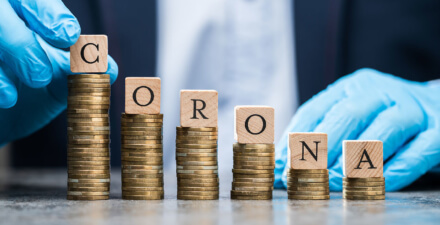Think Tank Leaders Respond to Senate Bill, Reiterate Call for Congress to Step Up to Meet Scale of Crisis and Help Workers, Families, and the Economy
“The legislation that just passed the Senate is a small, but wholly insufficient, step in the right direction.”
“This is not a moment for small measures or early declarations of victory. Congress must get to work immediately on additional legislation.”
Washington, DC – Today, following the Senate passage of interim coronavirus response legislation, leaders of progressive research, policy, and advocacy groups released the following statement calling on Congress to go much further to pass a robust legislative package that meets the scale of this crisis. The leaders once again laid out four specific principles that must guide continued congressional action to ensure that upcoming legislation puts workers, Black and brown communities, and the most vulnerable families ahead of Wall Street and massive corporations. A full list of signers is below.
“Two weeks ago we called on Congress to take aggressive action to help struggling families and communities, stabilize the economy, and enact the structural changes needed to make our economy less vulnerable to crises like these. The legislation that just passed the Senate is a small, but wholly insufficient, step in the right direction. While additional aid for small businesses is critical—as is the long-overdue additional investment in testing—the bill doesn’t go nearly far enough, it leaves quite a lot left undone, and it does not fully live up to the principles needed for an effective and inclusive relief and recovery package. As a result, many people, families, and communities will remain in dire straits.
“This is not a moment for small measures or early declarations of victory. Congress must get to work immediately on additional legislation that meets the scale of this public health and economic crisis and that includes built-in mechanisms to ensure that the aid provided will not expire before the crisis is over. We once again urge them to adhere to the following principles to ensure that workers and families are prioritized so that we can protect lives and livelihoods, and rebuild our economy stronger than it was before.”
“Build Economic Resilience for the Long Term. This crisis has laid bare that decades of rampant inequality, attacks on public institutions, and blind faith in markets to solve public problems has left our economy deeply vulnerable. This crisis is acute in part because millions of families lack good jobs and adequate healthcare—especially the Black and brown families and women who are filling what are only now deemed essential roles in our economy—and because government agencies tasked with pulling people from the brink are operating on threadbare budgets. Congress must address the underlying structural weaknesses in our economy that helped propel this crisis and ensure that the investments made now are durable enough to prevent future crises.
“Reinforce essential responders, including workers, small businesses, and state and local governments. This crisis confirms how workers in traditionally low-paid jobs like warehouse workers, grocery clerks, farm workers, and child care workers are—like health care professionals—essential responders. These workers, disproportionately women and people of color, are risking their lives each day, yet lack basic protections to keep them safe and healthy. State and local governments are similarly pushing their resources to the brink to support their residents, and are in desperate need of federal government relief. Half measures to aid those we all rely on most in this crisis will not be sufficient. Congress must provide substantial and sustained relief to state and local governments and directly to all workers on the front lines.
“Repair the Economy by Helping People. This crisis will only be solved by investing in people, first and foremost. Saving our economy from total collapse will require major investments in the health and economic well-being of the workers, small businesses, families and communities who drive our economy, and in order to be effective, must be inclusive of workers who are typically excluded, like restaurant workers, immigrants, and people of color. Instead of hoping that jobs and economic health will trickle down from corporations and the rich, Congress must prioritize getting substantial aid to the people who need it the most.
“Prevent Further Accumulation of Corporate Power. During the last recession, corporations received massive bailouts while continuing the risky behavior that caused the economy to collapse. Corporations, private equity, and payday lenders also moved quickly to profit off of the suffering of millions of families, which made recovery more difficult, particularly in low-income and communities of color. Left unchecked, they will again extract from the public good and exploit marginalized people, which will leave the economy less stable overall — and will likely allow them to concentrate their power as smaller businesses fail. Congress must prioritize shoring up small businesses and institute strong accountability mechanisms and regulations to prevent large corporations from using this moment of crisis to further concentrate economic and political power.”
The following group leaders signed this statement:
Eileen Applebaum, Center for Economic and Policy Research
Brian Kettenring, Center for Popular Democracy
Lorella Praeli, Community Change Action
Dorian Warren, Community Change Action
Thea Lee, Economic Policy Institute
Chris Hughes, Economic Security Project
Natalie Foster, Economic Security Project
Taylor Jo Isenberg, Economic Security Project
Indi Dutta-Gupta, Georgetown Center on Poverty and Inequality
Michael Linden, Groundwork Collaborative
Fatima Goss Graves, National Women’s Law Center
Heather Boushey, Washington Center for Equitable Growth
The Washington Center for Equitable Growth is a nonprofit research and grantmaking organization dedicated to advancing evidence-backed ideas and policies that promote strong, stable, and broad-based economic growth. For more information, see www.equitablegrowth.org and follow us on Twitter and Facebook @equitablegrowth.




